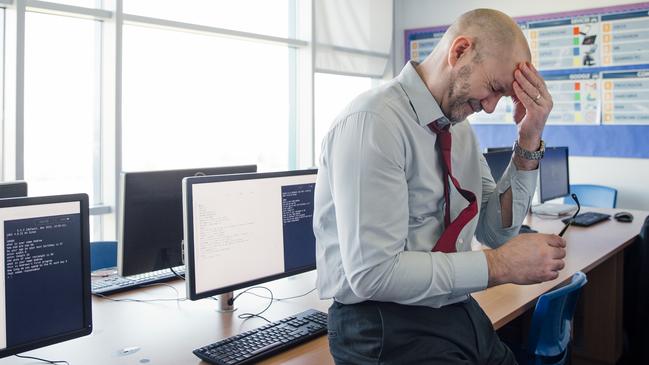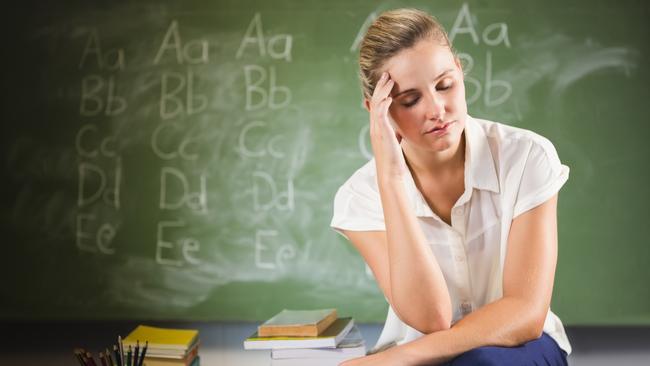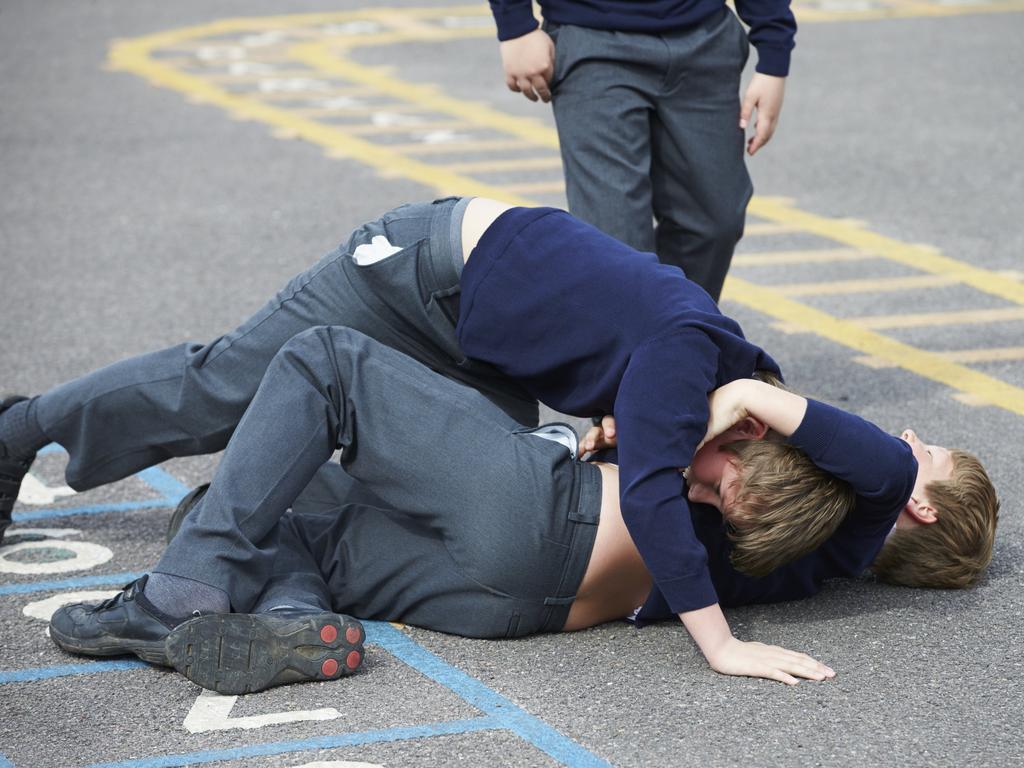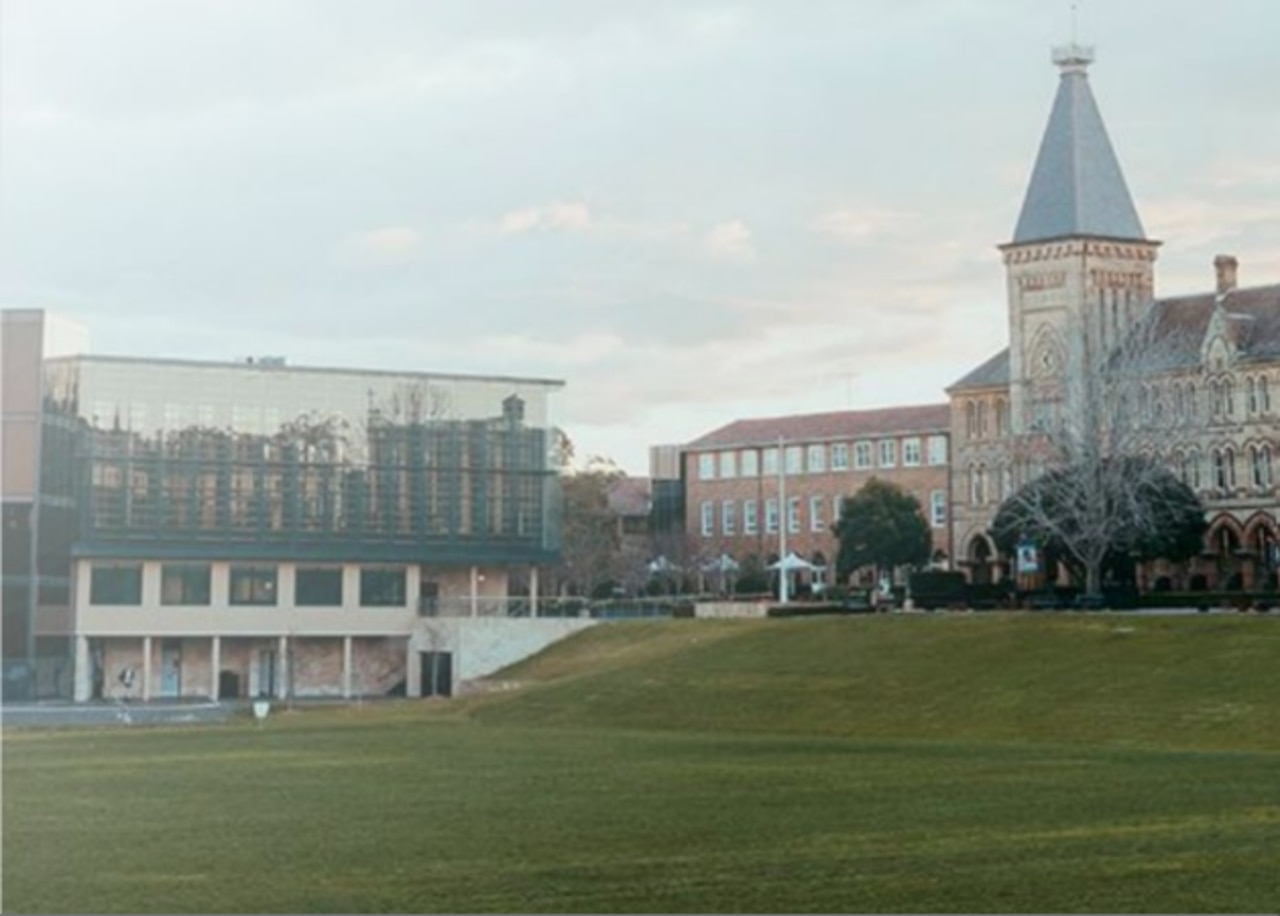Stressed teachers are exposed to childhood trauma, new study shows
Suicide attempts and threats by school students have affected one in nine principals, a shocking new study shows as teachers detail ‘heartbreaking trauma’ in classrooms.

Suicide attempts and threats by school students have affected one in nine principals, a shocking new study shows as teachers spell out “heartbreaking trauma’’ in classrooms.
Australian Catholic University (ACU) research reveals that 81.5 per cent of Australian principals have experienced “critical incidents’’ in their schools, including violence, mental health crises, suicide attempts and medical emergencies.
Lockdowns during the Covid-19 pandemic, social media and family dysfunction were blamed for “compounding trauma and stress’’.
“Many participants believe that the Covid-19 pandemic contributed to student disengagement from school,’’ the ACU report states.
Principals were more likely to experience suicide attempts or threats by students, than medical emergencies.
“There seems to be more knife incidents, and more violence happening within schools,’’ one principal told the research team.
Violent parents were “striking people within school grounds’’.
“I’ve had students bring weapons to school with the intent to use them,’’ a principal said.
The ACU research was based on survey responses from 195 school leaders this year, along with 1878 who took part in a separate ACU Principals’ Health and Wellbeing Survey.
One principal assaulted at school “sat crying’’ in their office.
“You wipe your tears … and you keep going,’’ they said.
The ACU research team, led by Associate Professor Theresa Dicke, called for in-house psychologists to help teachers deal with student trauma.
Improved and swifter communication with emergency services, along with better training in university teaching degrees, were also recommended.
The ACU findings coincide with a separate study of 2300 school staff by Deakin University, which reveals one in three teachers are considering quitting due to “secondary traumatic stress’’ from witnessing students’ trauma.
Domestic violence, parental neglect and physical and sexual abuse were the top sources of student trauma, the study found.
“Many educators said a significant source of stress is that they cannot access services to get help for students living in abusive or neglectful environments,’’ the study concluded.
“This leaves them with no other choice than having to send students back into unsafe home environments.’’

Lead researcher Dr Adam Fraser said teachers’ stories were “confronting, challenging and heartbreaking’’.
One teacher in a special school confided to researchers that a child had just died.
“This is the eighth student we have lost since I have been here,’’ they said.
“Working closely with student that hurt themselves is so hard to do.
“You feel helpless when it happens … multiple times a day … hitting themselves, hitting their head on the floor, pulling out their fingernails, picking at their cuts to make them worse.’’
Nearly a third of teachers were seeing a private psychologist for help to deal with school stress.
One teacher, who was punched and injured by a student, said her supervisor told her: “I can’t see any bruising, get back to work.”
The study cites an educator stating that “schools just have to keep dealing with the carnage of a failing society with limited care and support from all other systems’’.
“The trauma that this generation of children is experiencing due to the lack of support services available and the impact of family dysfunction, drugs, alcohol … is failing our children.’’
Another teacher opined that “children are getting worse behaved and there are no real consequences for their actions’’.
The report notes a “trauma spiral where kids who have never experienced trauma are being traumatised by other students’ extreme behaviours’’.
Welfare dependency is described as a source of poor behaviour.
“The level of disrespect … truancy and non-support from homes where neglect or DV or substance abuse occurs has increased tenfold,’’ one teacher told the researchers.
“School is not seen as important as they don’t see the need to get a job to get money.’’
Lifeline.org.au 13 11 14
Kidshelpline.com.au 1800 55 1800






